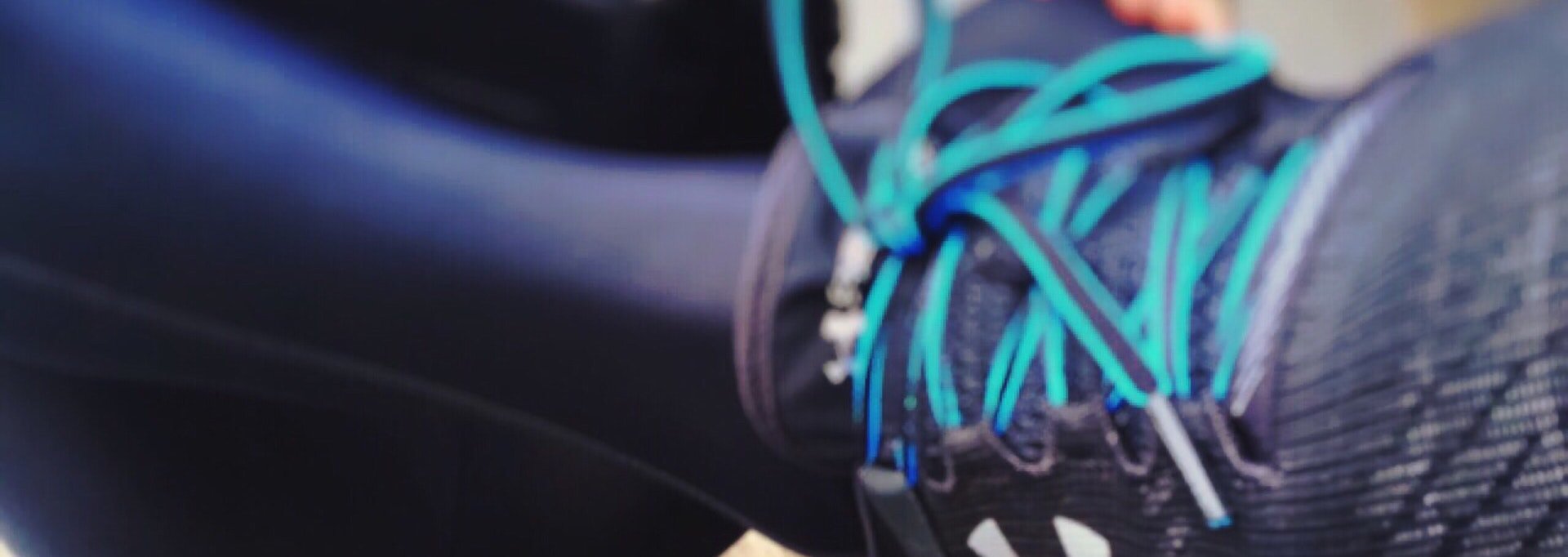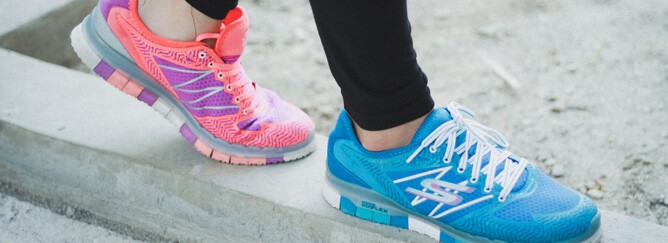Falling is something we do a lot of as kids, and you might assume that with age you fall less and less, but it isn’t the case. And as we age, the consequences of falling get a lot worse.
Falling over as a kid - no biggie. There’s a bit of a cry, maybe a trip to the hospital and if you’re really unlucky, a few weeks in some plaster.
Falling as a teenager - you might not cry, but are probably 10 times more embarrassed. Still you get the trip to the hospital, but likely you’ll make a full recovery.
Falling as an adult - yeah that definitely sucks. It seems to hurt a ton more, and if you end up in a cast/splint/moonboot you might also end up out of work for a month or so, which really can affect your life and cause a lot of stress.
Falling as an older adult - you might die. Exaggeration?? Unfortunately, no.
There are some scary statistics around falling as we get older. But... keep in mind that ALL of the consequences of falling CAN be avoided… just don’t fall over! As obvious as that sounds, falls are increasing in prevalence, but it doesn’t have to be that way. If you, or someone that you know might be at risk, seriously, be proactive, and work on your balance to avoid some severe potential issues. The best thing about balance, is that it is trainable at ANY age. (Skip to the end to see my quick guide to balance training)
The scary stats on falls
The Incidence and Costs of Injury in Western Australia 2012 highlights some of those scary stats that I was talking about. Falls and car accidents were the most common unintentional injuries. Car accidents makes sense right? And surely that would be more significant than falls? Wrong. Falls accounted for more than DOUBLE fatal injuries AND non fatal hospitalisations compared to car accidents. Just think about that for a second. Out of all the things you can end up in hospital for, car accidents seems logical, but falls is not only higher, it trumps all the other illnesses or injuries that you could sustain. That’s bad. And it needs to change.
By 2051 if trends continue, 2500 additional hospital beds would have to be PERMANENTLY allocated to treat falls.
Want more? The Falls Prevention Model of Care 2014 WA also highlights that it is even scarier if you look at who the people being hospitalised are. The vast majority of these people are older, meaning if you take a look at the ageing population, the stats get more worrying. The older you are, the more likely you are to end up in hospital. And not with small stuff either, the biggest injury from falls in over 65’s is a fractured hip. You know what that means, right? A total hip replacement. Whether or not you wanted it or not. You now have to go through the painful and arduous task of rehabbing a joint being replaced, with no warning, no preparation. Is maintaining your balance as you age suddenly sounding like a good idea? It should be.
And in the battle of the sexes, women get another unfair blow… females make up the lion’s share of falls, so for you, balance and strength maintenance is even more important. And if you know someone that is in an aged care facility, the chance that they will fall gets higher again. The falls data that was gathered showed a total of 1.4 MILLION patient days each year in WA with an average of 14.7 days in hospital per fall. Think about that. The average was over 14 days per fall injury case. That’s just in hospital, not even worrying about all of the recovery that you have to go through when you go home.
Take your balance seriously (pssst.... start now)
Please. Please put some time into your balance. I do, even while I’m in my 30’s. I might look a bit funny at the gym, but between sets I often close my eyes and stand on my toes on one foot. I’m not bad at it, and the idea is to stay that way as I age, so I don’t end up becoming one of those dismal statistics.
My view is that it's my responsibility to do everything I can to make sure I’m not occupying one of those extra hospital beds in 2051. I’ve seen enough from working in hospitals and clinics to know that it’s a HORRIBLE ordeal. We’ve all heard stories of someone being found hours or days after falling in their home and not being able to crawl to the phone, and hoping to be found. No thanks.
The good news is that balance is TRAINABLE at ANY AGE.
Your guide to training for balance
What should you do? More!
- If you are doing some training for balance, do more!
- If you aren’t doing any specific training, then start some. In addition to your fitness/gym/walks/swimming or whatever else you do or don’t do, start a SPECIFIC balance exercise.
- Through research, we KNOW that many falls can be prevented, and that injury prevention needs to be addressed proactively (before you actually fall!).
- A visit to a qualified physiotherapist, with the purpose of getting started on balance training, is a good place to start. Your physio can do an assessment on your balance at baseline, implement a program that will be specific and graduated to your exact needs, and then reassess at a later time to ensure you’re maintaining your balance and hopefully if you work hard enough, getting better.
- There are other things that you can do too once you have your program started with your Physio. For example, go and do a free community Thai Chi class, look into Live Longer Live Stronger programs at your local gyms, or ask your physio about something else you can do.
- A great resource that you can look into is ‘Preventing Falls and Harm From Falls in Older People’, which contains the best practice guidelines for Community, Hospital or Aged care facilities. Be warned, they're quite a heavy read but will hopefully give you a few ideas on where to start.
Think you've got pretty good balance already? Here's a quick test so you can check that.
- Make sure you're in a safe and controlled environment where you can’t fall
- Stand on one leg with your eyes open for 30 seconds.
- Now close them. And again try and stand on one leg for 30 seconds.
How'd you go? The minimum you should aim for is not having to use your other foot or hands to support yourself for the 30 seconds. Including when you've closed your eyes.
If you managed to do this. Great! This is positive… Keep it that way!
If not, it’s never too late to change!! Why not take the first step to improve your balance by coming to see us at Swan Physio
And, please take your balance seriously.

